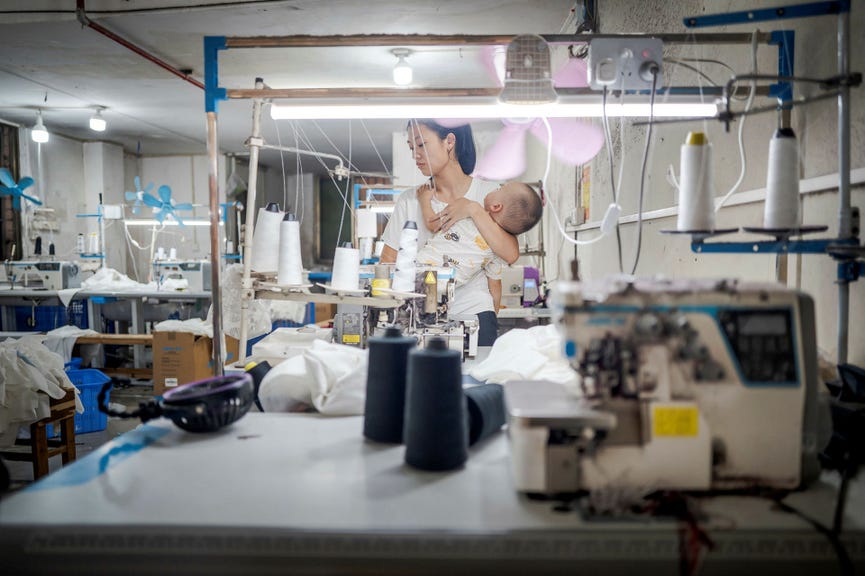The bustling streets of Panyu, a suburb of Guangzhou in southern China, are a sensory overload. Street vendors hawk everything from the pungent durian fruit to cheap clothing with misspelled brand names. But beyond the vibrant street life, hidden within nondescript buildings, lies a different world: the heart of ”Shein Village,” the epicenter of fast fashion giant Shein’s manufacturing operations. Thousands of small factories hum with the constant whirring of sewing machines, churning out a relentless stream of trendy clothing destined for online shoppers in the West. The scene is a microcosm of the complex global supply chain that fuels fast fashion, revealing both the opportunities and the challenges of this rapidly evolving industry.
Within these factories, workers like Xiao Wei toil long hours, often working from early morning until late night, with minimal breaks. The pressure is immense. Xiao Wei, a young mother, balances the demands of her job with the care of her infant daughter, Xiao Xinchen, whom she soothes and places in a makeshift crib beside her sewing machine. She and countless others work on a piece-rate system, their earnings directly tied to their output. Speed is paramount. Despite their dedication and long hours, the workers in Shein Village earn modest wages, barely enough to cover basic living expenses.
The dominance of Shein in Panyu has had a profound impact on the local garment industry. While it has created jobs, it has also driven down wages and intensified competition. Shein’s business model, characterized by small, frequent orders of new designs, puts pressure on suppliers to minimize costs. This often results in the use of lower-quality materials and compromises on worker welfare. Workers report that Shein offers lower compensation compared to other clients and that the small order sizes make it difficult to earn a decent living. Yang, a factory supervisor, explains that they only accept Shein orders when they have no other work, as it barely generates any profit.
Shein’s strategy of producing small batches of new items daily allows them to minimize unsold inventory and quickly respond to changing trends. This fast-fashion approach, however, puts a strain on suppliers like Yang. Producing small quantities at low prices offers minimal profit margins. The constant pressure to keep up with Shein’s demands has led to a decline in quality and increased exploitation of workers. Many feel trapped in a cycle of low wages and long hours, struggling to make ends meet in the face of rising living costs. Sun, another factory manager, laments the deteriorating conditions, noting that prices per garment have decreased while rent and other expenses have risen.
Shein’s rapid ascent, fueled by aggressive social media marketing and rock-bottom prices, has disrupted the traditional fashion industry. The pandemic further accelerated its growth as locked-down consumers turned to online shopping. However, Shein’s dominance is now being challenged by Temu, a rival fast-fashion platform. Temu, with its diverse product offerings and similar business model, has become a formidable competitor. Both companies rely heavily on social media influencers and actively engage in ”fast fashion” trends. The competition between Shein and Temu has spilled over into Panyu, with Shein reportedly threatening suppliers who also work with Temu. Despite these threats, many factories accept orders from both companies to maintain a steady workflow.
The fast-fashion model employed by Shein and Temu has been criticized for its environmental and social impact. Traditional clothing brands accuse the Chinese giants of unfair competition, citing their ability to avoid tariffs by shipping small packages and their alleged disregard for safety and sustainability standards. Studies have revealed hazardous substances in products from these platforms, raising concerns about consumer safety and environmental regulations. While these issues play out on a global scale, the workers in Panyu remain focused on their daily struggle to earn a living and provide for their families. In the relentless hum of the sewing machines, the human cost of fast fashion becomes starkly apparent.














